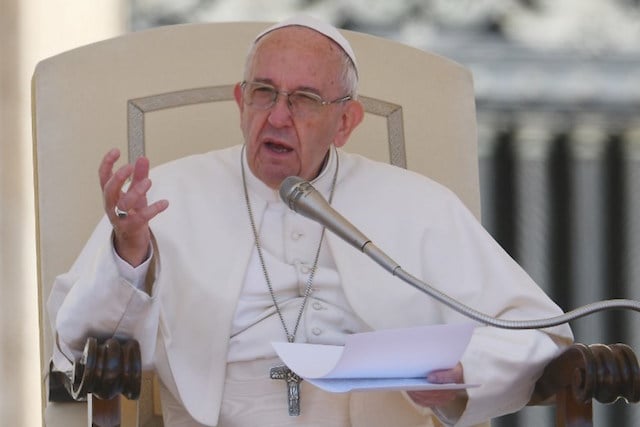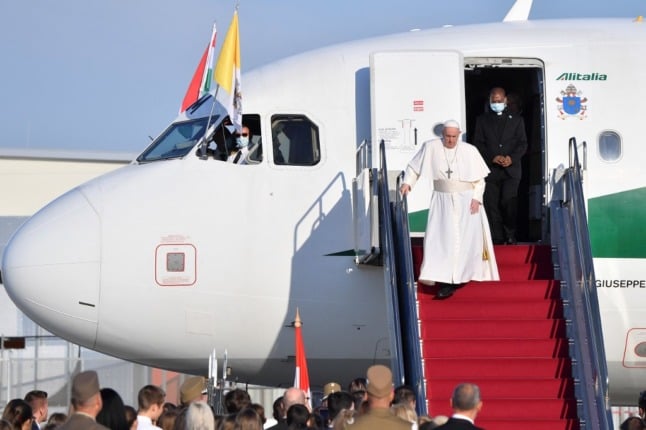Demonstrations and violence broke out across the Palestinian territories for the second Friday in a row after the end of weekly Muslim prayers.
Two Palestinians were shot and killed by Israeli forces in clashes along the Gaza-Israel border, the Palestinian health ministry said.
The pope and King Abdullah, the custodian of the Muslim holy sites in Jerusalem's Old City, are likely to discuss the situation, though the Vatican never indicates topics of discussion for such meetings in advance.
On Sunday the pope called for “respect of the status quo” in Jerusalem and warned against “a new spiral of violence”.
Abdullah has denounced the Jerusalem announcement as “a violation of international rights”.
Jerusalem, which contains sites considered sacred by Christians, Jews and Muslims, is of huge importance to both Israel and the Palestinians.
Trump's recognition of Jerusalem as the Israeli capital, and his plans to move the US embassy there from Tel Aviv, effectively ignores Palestinian claims on the city and has led to widespread criticism and protest, particularly in the Arab world.
Israeli sovereignty over Jerusalem has never been recognised internationally, and all countries maintain their embassies in Tel Aviv.
The UN has long maintained that the only way to forge peace is to have two states — Israel and Palestine — with Jerusalem as the capital of both and the borders returned to their status before the 1967 Arab-Israeli War.
East Jerusalem was annexed by Israel after the war, but before Trump's announcement it had not been internationally recognised as part of Israel.



 Please whitelist us to continue reading.
Please whitelist us to continue reading.